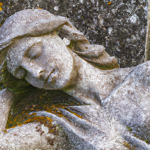Holocaust Memorials: Remembering the Tragedy and Honoring the Lives Lost
Introduction
The Holocaust stands as one of the darkest chapters in human history, a period of immense suffering and loss. As the world strives to never forget this tragedy, Holocaust memorials have emerged as powerful symbols of remembrance, education, and hope. These memorials serve as a testament to the millions of lives lost and a reminder of the importance of fighting against hatred, prejudice, and genocide. In this article, we will explore the significance of Holocaust memorials, their impact on individuals and communities, and the role they play in shaping collective memory.
The Power of Remembrance: Preserving History and Honoring the Victims
Holocaust memorials are not mere structures; they are sacred spaces that bear witness to the horrors of the past. They serve as a physical reminder of the atrocities committed during the Holocaust, ensuring that the memory of the victims and survivors endures for generations to come. Personal experiences like mine have highlighted the emotional impact of visiting these memorials.
Several years ago, during a trip to Berlin, I visited the Memorial to the Murdered Jews of Europe. As I walked through the maze-like arrangement of 2,711 concrete slabs, known as stelae, I was overwhelmed by a sense of grief and solemnity. The sheer scale of the memorial was a visual representation of the magnitude of the tragedy. It evoked a profound empathy for the millions who suffered and perished.
Education and Awareness: Combating Ignorance and Prejudice
Holocaust memorials also play a crucial role in educating the public about the Holocaust’s history and its lessons. They serve as educational tools, providing visitors with a deeper understanding of the events that unfolded during this dark period. By confronting the past, these memorials challenge us to reflect on the consequences of hatred and intolerance.
My visit to the United States Holocaust Memorial Museum in Washington, D.C. was a deeply impactful experience. The museum’s exhibits, multimedia presentations, and personal testimonies immersed me in the stories of individuals who endured unimaginable suffering. It emphasized the importance of recognizing the signs of genocide and taking action to prevent such horrors from happening again.
Collective Memory: Uniting Communities and Promoting Healing
Holocaust memorials have the power to bring communities together and foster a sense of shared responsibility. They provide a space for public gatherings, ceremonies, and discussions, promoting dialogue and understanding. These memorials encourage communities to confront painful truths and work towards healing the wounds of the past.
In my hometown, a small Holocaust memorial was inaugurated a few years ago. The unveiling ceremony brought together diverse individuals from various backgrounds and faiths. It was a powerful reminder that the memory of the Holocaust belongs to humanity as a whole, and it is our collective duty to ensure that history does not repeat itself.
Summary:
In conclusion, Holocaust memorials are not mere monuments; they are living testaments to the importance of remembrance, education, and unity. They stand as reminders of the immense suffering endured during the Holocaust and serve as a call to action against hate and prejudice. These memorials have the power to educate, heal, and bring communities together, ensuring that the lessons of the past shape a more compassionate and tolerant future.













